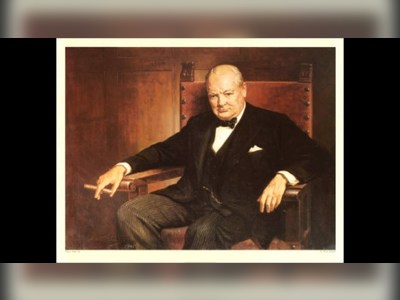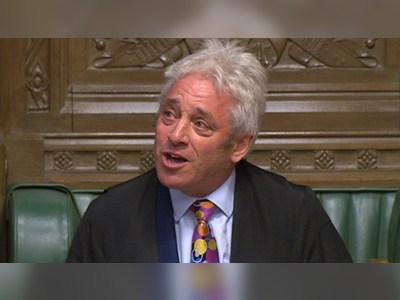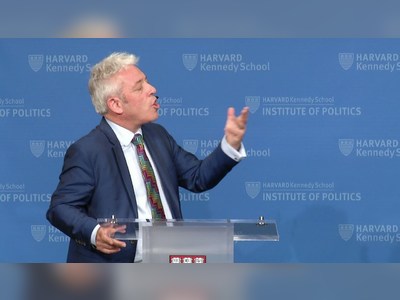British Heritage
Remember, Cherish, Learn.
beta
Paul McCartney - Rock & Roll Hall of Fame Induction Ceremony, 1999
A Pioneering Force in British Musical Heritage.
In the rich tapestry of British musical heritage, Sir Paul McCartney stands as a towering figure whose influence transcends time and borders. Born in Liverpool in 1942, McCartney, through his extraordinary talent and passion, has left an indelible mark on music and culture worldwide. His journey from the backstreets of Liverpool to the pinnacle of global musical acclaim encompasses not only his unparalleled success with The Beatles, but also a thriving solo career, creating a legacy that resonates profoundly within the narrative of British heritage. His induction into the Rock & Roll Hall of Fame in 1999 as a solo artist affirms his substantial individual contribution to music.
James Paul McCartney was born on 18 June 1942 in Liverpool, England. His father, a jazz player, along with early rock 'n' roll artists like Little Richard and Buddy Holly, deeply influenced his musical development. McCartney taught himself to play the piano, guitar, and cultivated his songwriting skills from an early age. His musical journey began in earnest when he joined the Quarrymen in 1957, a group that would eventually evolve into The Beatles by 1960.
Often referred to as "the cute Beatle," McCartney played a pivotal role in The Beatles, contributing significantly to their transformation from a local Liverpool band to a phenomenon of global scale. Alongside John Lennon, he formed what is now considered the most successful songwriting partnership in history. The pair produced an array of legendary songs, including "And I Love Her," "Yesterday," "Eleanor Rigby," and "Blackbird," all of which rank among the most covered songs in history. McCartney also pioneered the incorporation of experimental aesthetics into The Beatles' studio productions, asserting himself as the band's creative leader.
Following the disbanding of The Beatles, McCartney embarked on a successful solo career, marking his debut with the 1970 album 'McCartney'. He later formed the band Wings with his first wife, Linda, and Denny Laine. Led by McCartney, Wings emerged as one of the most successful bands of the 1970s, delivering more than a dozen international top 10 singles and albums.
His solo career, which has continued into the present, includes various number-one hits such as "Uncle Albert/Admiral Halsey" (with Linda), "Coming Up", "Pipes of Peace", "Ebony and Ivory" (with Stevie Wonder), and "Say Say Say" (with Michael Jackson). McCartney's commitment to his solo career culminated in his induction into the Rock & Roll Hall of Fame in 1999 as a solo artist, affirming his significance as an individual force within the music industry.
Paul McCartney's impact extends beyond the realm of music. He has actively participated in various international charities, advocating for animal rights, vegetarianism, poverty alleviation, and music education. His dedication to these causes further embeds his legacy in the fabric of British and global societal progress.
With a catalogue that includes 32 songs that have topped the Billboard Hot 100, McCartney remains one of the most successful composers and performers of all time. His honours include two inductions into the Rock and Roll Hall of Fame (as a member of The Beatles in 1988 and as a solo artist in 1999), an Academy Award, 18 Grammy Awards, an appointment as a Member of the Order of the British Empire in 1965, and a knighthood in 1997 for his services to music. As of 2020, his estimated fortune of £800 million makes him one of the wealthiest musicians globally.
In conclusion, Sir Paul McCartney's contribution to British heritage is substantial and enduring. His prolific career, marked by unparalleled success and profound influence, encapsulates the power of music as a uniting, transformative force. McCartney's journey continues to inspire future generations of musicians and upholds the vibrancy of Britain's musical legacy.
Early Life and The Beatles
James Paul McCartney was born on 18 June 1942 in Liverpool, England. His father, a jazz player, along with early rock 'n' roll artists like Little Richard and Buddy Holly, deeply influenced his musical development. McCartney taught himself to play the piano, guitar, and cultivated his songwriting skills from an early age. His musical journey began in earnest when he joined the Quarrymen in 1957, a group that would eventually evolve into The Beatles by 1960.
Often referred to as "the cute Beatle," McCartney played a pivotal role in The Beatles, contributing significantly to their transformation from a local Liverpool band to a phenomenon of global scale. Alongside John Lennon, he formed what is now considered the most successful songwriting partnership in history. The pair produced an array of legendary songs, including "And I Love Her," "Yesterday," "Eleanor Rigby," and "Blackbird," all of which rank among the most covered songs in history. McCartney also pioneered the incorporation of experimental aesthetics into The Beatles' studio productions, asserting himself as the band's creative leader.
A Flourishing Solo Career
Following the disbanding of The Beatles, McCartney embarked on a successful solo career, marking his debut with the 1970 album 'McCartney'. He later formed the band Wings with his first wife, Linda, and Denny Laine. Led by McCartney, Wings emerged as one of the most successful bands of the 1970s, delivering more than a dozen international top 10 singles and albums.
His solo career, which has continued into the present, includes various number-one hits such as "Uncle Albert/Admiral Halsey" (with Linda), "Coming Up", "Pipes of Peace", "Ebony and Ivory" (with Stevie Wonder), and "Say Say Say" (with Michael Jackson). McCartney's commitment to his solo career culminated in his induction into the Rock & Roll Hall of Fame in 1999 as a solo artist, affirming his significance as an individual force within the music industry.
A Legacy of Influence and Recognition
Paul McCartney's impact extends beyond the realm of music. He has actively participated in various international charities, advocating for animal rights, vegetarianism, poverty alleviation, and music education. His dedication to these causes further embeds his legacy in the fabric of British and global societal progress.
With a catalogue that includes 32 songs that have topped the Billboard Hot 100, McCartney remains one of the most successful composers and performers of all time. His honours include two inductions into the Rock and Roll Hall of Fame (as a member of The Beatles in 1988 and as a solo artist in 1999), an Academy Award, 18 Grammy Awards, an appointment as a Member of the Order of the British Empire in 1965, and a knighthood in 1997 for his services to music. As of 2020, his estimated fortune of £800 million makes him one of the wealthiest musicians globally.
In conclusion, Sir Paul McCartney's contribution to British heritage is substantial and enduring. His prolific career, marked by unparalleled success and profound influence, encapsulates the power of music as a uniting, transformative force. McCartney's journey continues to inspire future generations of musicians and upholds the vibrancy of Britain's musical legacy.




